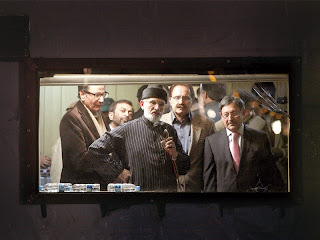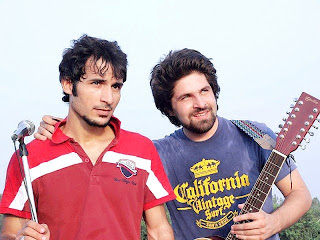For kids, time spent inactive seems less of a factor in higher body fat than does a lack of exercise, according to a new study.
Researchers
found that the more minutes kids spent exercising at the pace of a fast
walk each day, the lower their body fat percentage was. But the time
they spent as couch potatoes made no difference, according to results
published in the Journal of Pediatrics.
"Our study
supports the current physical activity guideline, that's what I want
people to know," lead author Soyang Kwon, a pediatric researcher at
Northwestern University in Chicago, told Reuters Health.
The
U.S. Department of Health and Human Services recommends that children
and teens exercise at least at the intensity of a fast walk, about 3.5
miles per hour, for 60 minutes every day.
Last spring a
study in adults found a different result: regular exercise doesn't
protect against the dangers of sitting for many hours at desk jobs (see
Reuters story: reut.rs/HiZ3Mw). This is likely because kids are more
active than adults overall.
"In adults, where the activity
levels are generally less, the time spent sedentary may have more of an
effect," Russell Pate, who studies physical activity in kids at the
University of South Carolina in Columbia, told Reuters Health.
Kwon
and her coauthors from the University of Iowa used data from a study in
that state that followed kids of various ages from 2000 to 2009.
A
group of 277 boys and 277 girls were measured at eight, 11, 13 and 15
years old for body composition and fat content using a precise X-ray
technique originally developed to assess bone density. At each age, the
exposure to radiation from the test was about equal to one transatlantic
flight.
The same children wore an accelerometer, which measures body movement, for several days in a row sometime in the same year.
Even among kids who exercised the least, sitting didn't make much of a difference.
For
the 13 year olds, those who sat less than, more than or equal to the
average six and a half hours per day all had about the same body fat
mass. But boys who spent the least amount of time in moderate to
vigorous activity had about 11 pounds more body fat, on average, than
those who exercised the most.
For 13 year old girls, the
low level exercisers had about seven pounds more body fat than the
exercisers. Results were similar in every age group, but the researchers
did not record if each child was overweight or not.
In an
earlier study, the same team of researchers found that even light
intensity activity, like walking, every day, was linked to lower levels
of fat in teens, but not young children.
But experts
caution this doesn't mean kids should camp out in front of a screen for
hours at a time. Previous research has shown a link between sedentary
screen time and weight gain, probably because watching TV often goes
hand in hand with snacking, Ulf Ekelund told Reuters Health.
"Parents
should encourage their children to be physically active, the more the
better," said Ekelund, who studies obesity risk factors in children at
the Norwegian School of Sport Science in Oslo. "That might sound simple,
but the execution isn't so simple sometimes."
"I support
parents establishing rules that limit TV and videogames," but more is
needed, said Pate, who was not involved in the new study. "If we get
kids away from the screen that doesn't mean that they start to jump up
and do vigorous activity." (Reuters)




































